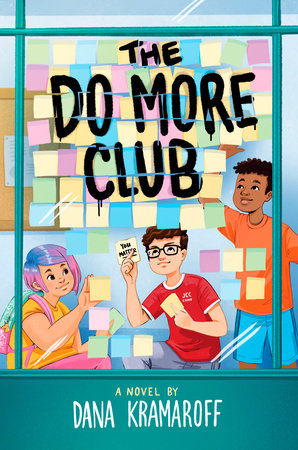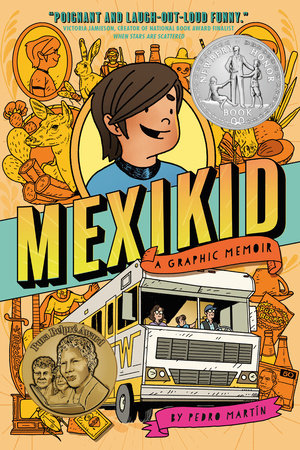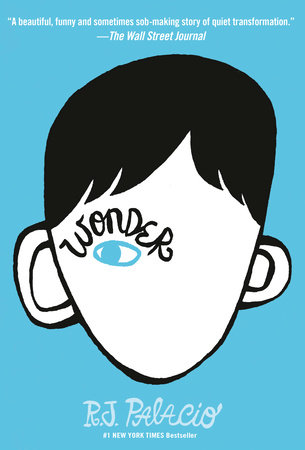How To Use Book Talks in the Classroom To Build Reading Excitement
by Lindsay Barrett
When I finish a satisfying book, I often think about who else would love it. Sometimes, it’s the perfect option for my mom’s longstanding book club. Sometimes, I dash off a recommendation to my group text with my childhood friends. Sharing one’s excitement about books evokes positive feelings for readers of all ages — and helps spread reading joy.
Reap the benefits of book talks
While many readers find informal conversations about books rewarding, structured “book talks” are a powerful tool for convincing other readers to pick up a title, especially in the classroom. A book talk is part summary and part review, delivered as an advertisement. It’s tailored to the audience and aims to tell them, in a concise, engaging way, why they will love the book.
Book talks give the speaker a different way to think about a title. How can you distill what you liked about the book into a few sentences? How can you pique others’ interest without giving away the entire plot? Often, when I’m preparing a book talk, it forces me to shape my emotional reaction to a book into words.
Hearing an appealing preview of the book’s content builds a listener’s background knowledge of the book’s topics and themes. It may suggest connections to previous experiences or knowledge they wouldn’t have thought about on their own. Most importantly, book talks can turn a reader onto a title they wouldn’t have otherwise considered.
Use classroom book talks to entice kids to read
I often advise teachers to think of themselves as marketing directors for reading. This mentality helps you set up your classroom library for success and can drive the way you talk about books with students. You are the ideal person to sell awesome reading experiences. To hone your book talk skills:
- Learn from professional book-talkers. Let yourself get excited to give a compelling book talk. Watch a seasoned expert, like energetic teacher and author Colby Sharp, talking up The Do More Club by Dana Kramaroff or Mexikid by Pedro Martín. Go ahead and steal all the moves!
- Craft your lead. When you approach a book talk like a marketing pitch, it helps you consider which aspects will draw in other readers. Does the book share characteristics with a title or series you know they loved? Does it relate to school, community, or world events that are on their mind?
- Make it genuine. Kids are geniuses at spotting a fake. Maybe you can pull off a great book talk about a book you haven’t actually read, but at least admit it. Be engaging, but be yourself; don’t overdo it on kid-slang. (This tip comes from my child, who recently told me I should stick to “speaking grown-up.”)
- Recruit a marketing team. For many kids, the person suggesting the book is just as important as the book itself. Bring in other respected book talkers to sell books to your class, like older students from years past or a favorite school adult
Invite kids to the book talk club
Getting kids involved in giving book talks benefits everyone. Preparing a book talk is an excellent comprehension exercise, and hearing book talks from other kids builds a community of readers. To get kids book talking in your class:
- Share lots of inspiring examples. Librarians are often awesome at book talks, along with social media creators. However, some of the best models for kids are other kids! Check out this short example of a book talk about Hidden Truths by Elly Swartz or this longer talk about Wonder by R. J. Palacio.
- Create a list of book talk dos and don’ts. When kids have heard enough sample book talks, they can help identify a list of tips. DO tell the title and author, and tell a bit about the main character. DON’T give away the entire plot or spoil the ending!
- Explore different types of book talks. Help kids flex their book-talking muscles by talking about books in different ways. Informal pair/shares about what everyone is currently reading get kids talking about books often. Picture book talks can be prepared quickly, and older kids love revisiting this treasured format. Switch up the focus of book talk assignments. For instance, ask kids to introduce a character (or even act as that character), describe the book’s setting, share a cliffhanger from the plot, or read a favorite quote.
- Add incentive. Kids love a bit of friendly competition. Try a “March Madness” book talk event where students talk their way through a bracket, trying to convince their peers of the best book of the year. Or, post a collection of book talk videos for another class to view and rate each one on how likely they are to read the book.
-
Books mentioned in this post:
-
The Do More Club
Also available from:Hidden Truths
Also available from:




